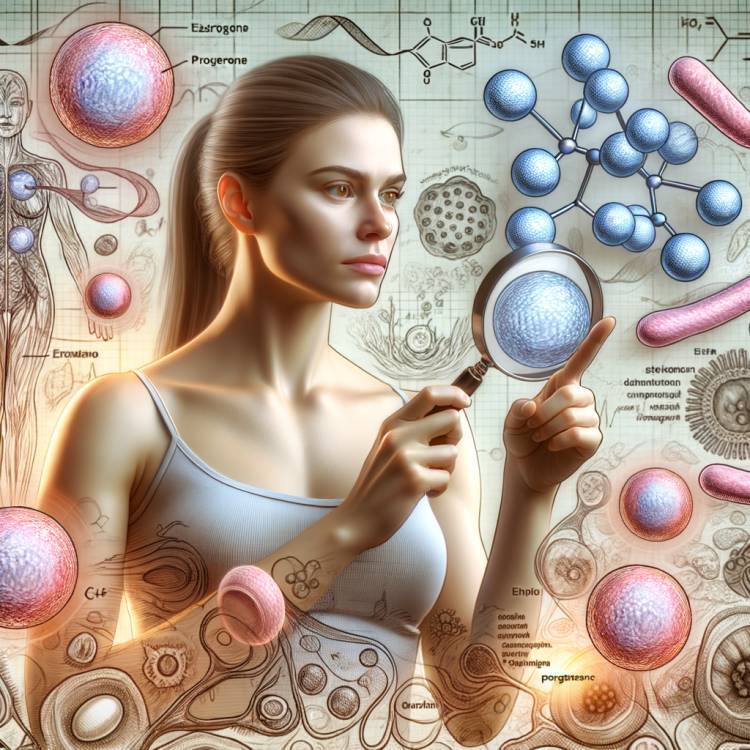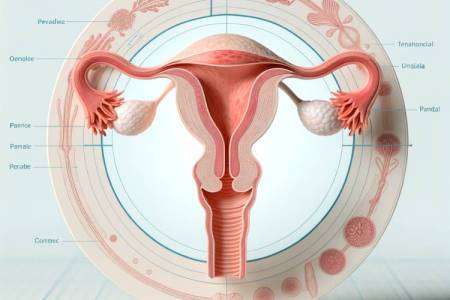The Impact of Hormones on Sexual Desire
Sexual desire is a complex and multi-layered phenomenon influenced by various factors, with hormones playing a crucial role in this process. Our body functions like an orchestra, where hormones conduct different physiological processes, including those that influence our desire for sex. In this article, we will explore the hormones that affect sexual desire and how their intricate balance works.
Testosterone: The Hormone of Passion and Desire
Testosterone is often associated solely with male sexuality, but it is also essential for women! This hormone, produced by both men and women, plays a key role in regulating sexual desire. Higher levels of testosterone are linked to increased libido in both sexes. In men, it boosts sexual drive, while in women, it supports desire and plays a role in ovulation.
To increase testosterone production, consider including foods like eggs, milk, avocado, meat, fatty fish, olive oil, and almonds in your diet. Testosterone levels can also be boosted through strength training and interval workouts (such as sprints or circuit training).
Oestrogen: The Female Hormone of Sexuality
Oestrogen is the primary hormone associated with female sexuality. Its levels fluctuate during the menstrual cycle and affect not only sexual desire but also vaginal lubrication and genital sensitivity. Higher oestrogen levels are often linked to increased sexual desire in women. Oestrogen-rich foods include strawberries, peas, flaxseeds, and various vegetables like tomatoes, eggplant, carrots, and kale. Additionally, Peruvian maca, known for its ability to maintain hormonal balance and influence sexual activity, is frequently discussed as a supplement and is available in tablets, capsules, or powder form.
Symptoms of oestrogen deficiency, such as irregular menstrual cycles, reduced libido, frequent urinary tract infections, or difficulty conceiving, can significantly impact a woman's life.
Progesterone: The Hormone of Calm and Stability
Progesterone, another hormone produced in the female body, can have both positive and negative effects on sexual desire. Its primary role is to prepare the uterus for pregnancy, so levels tend to rise during the second half of the menstrual cycle, after ovulation. Some women may experience decreased sexual desire during this time.
For optimal progesterone levels, ensure regular sleep, minimize stress, maintain physical activity, and eat a healthy diet. Foods rich in B vitamins, especially vitamin B6 (such as bananas, spinach, dried apricots, and sunflower seeds), can help maintain healthy progesterone levels.
Dopamine: The Hormone of Reward and Pleasure
Dopamine is a neurotransmitter that plays a key role in motivation, pleasure, and reward. Its release during sexual stimulation can enhance arousal and desire. Higher levels of dopamine in the brain during sexual activity can reinforce sexual desire and motivation for sexual behaviour.
You can boost dopamine through regular exercise, adequate sleep, listening to your favourite music, and meditation. In short, we get dopamine during pleasant situations, so do whatever fulfils you and makes you happy.
Oxytocin: The Hormone of Bonding and Trust
Oxytocin is known as the "love hormone" or "bonding hormone" because it is associated with forming emotional connections and deepening emotional bonds. It is released during intimate moments such as sex or skin-to-skin contact (e.g., touching or massage), increasing feelings of closeness between partners. Oxytocin also has significant anti-stress effects and plays a role in childbirth and breastfeeding.
Cortisol: The Stress Hormone and Its Effect on Sexual Desire
Cortisol, known as the stress hormone, can negatively impact sexual desire. Elevated cortisol levels can lead to fatigue, anxiety, and reduced libido. Chronic stress can adversely affect overall health and, by extension, sexual function. As mentioned earlier, regular exercise, a healthy diet, quality sleep, music, and spending time with loved ones are essential for proper body function and health. These are natural and very important activities for the proper functioning of our bodies and health. Unfortunately, many of us are still not sufficiently aware of such an important thing in our lives. Therefore, I urge you, the reader, to pay enough attention to these activities! Your body will pay you back in the best sense of the word.
Sexual desire is a complex phenomenon influenced by many factors, including the hormonal state of our bodies. Hormones like testosterone, oestrogen, progesterone, dopamine, oxytocin, and cortisol play key roles in developing and regulating sexual desire. It's important to recognize that each individual is unique, and hormonal balance can vary from person to person. However, a healthy lifestyle and incorporating the recommended foods into your diet can certainly help. If hormonal imbalances are suspected, consulting a doctor is crucial for maintaining overall health and sexual well-being.

 Tongue Tornado
Tongue Tornado 














Comments (0)
Facebook Comments (0)